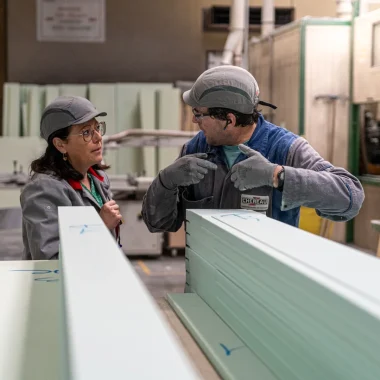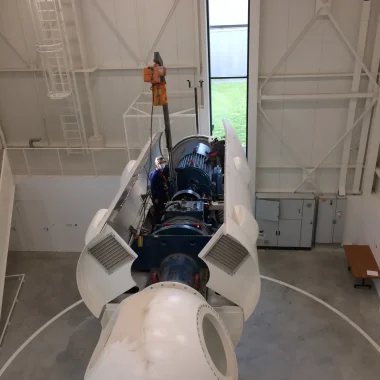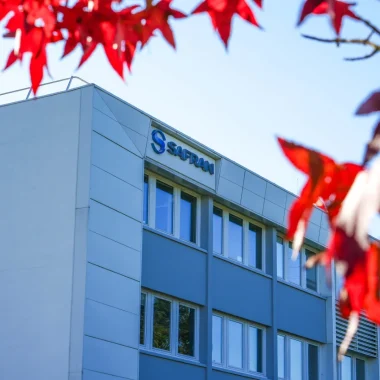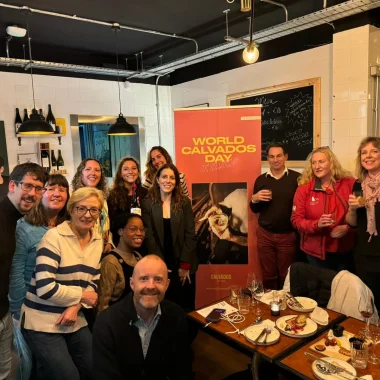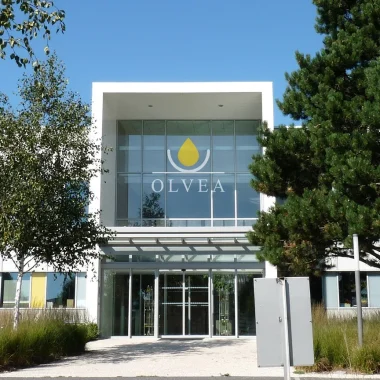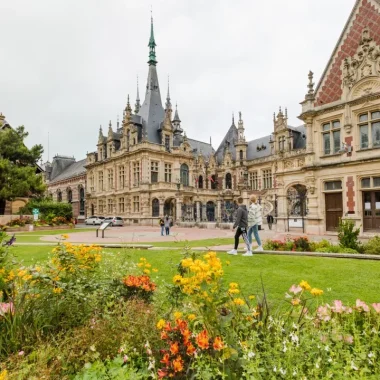They flash past us, often unseen, and yet they’re indispensable. They appeared in france in the 1960s, lining the roads – retaining devices, or crash barriers. They help keep vehicles on the road and give users added security. In the norman county of orne, at villedieu-lès-bailleul, tertu equipements has been developing innovative ones made from a mix of wood and metal, discreet guardian angels made in normandy, equipping roads around the world.
From fencing to crash barriers
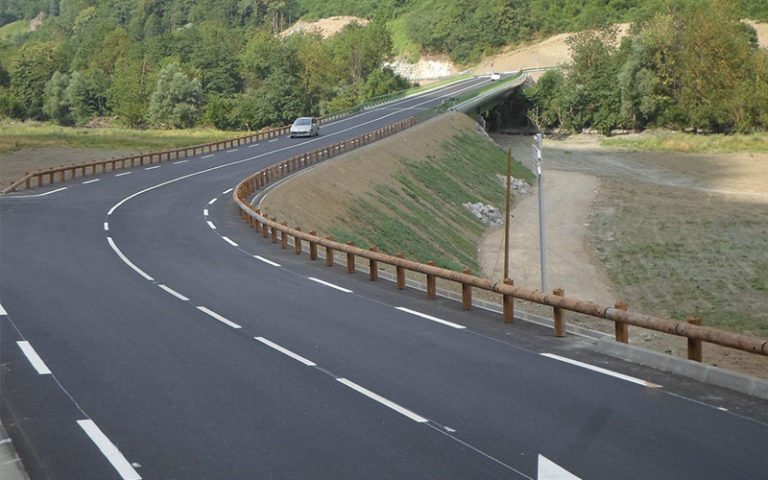
Back in 1986, mr and mrs de maussion founded tertu, after the name of their property, overseen by a forest of mighty douglas firs. The initial idea they had was to make the most of the trees’ high-quality timber to manufacture fencing for the very many stud farms in the region. At the start of the 1990s, they decided on a different tack. With the help of an engineer, monsieur de maussion developed the notion of combining wood and metal, with the aim of creating crash barriers. No sooner said that done, and in 1992 the company launched a first model of a crash barrier using mixed materials, in time for the albertville olympics – a major media event that allowed the company to get its product known.
This innovative principle has been shared by every subsequent model developed by the company. The barrier consists of a circular or semi-circular log (different diameters of wood are possible) into which a metallic reinforcement is inserted. This is then affixed to a metallic support, but itself made from the two materials. “On a worldwide scale, there are 4 standards” explains Vincent Calleja, who took over the company from his parents-in-law in 2020. “We’ve met the European standard for the last 20 years, we’re developing the American standard, we are not working on the Russian standard, and the Chinese standard, which we understand fully as we helped to write the security rules with the government as part of a dedicated committee.”
1992 undeniably marked the launching of the tertu company in the road sector.
Aesthetics, sustainable development and high performance… wherever used
Our mixed wood and metal barriers have an aesthetic side, fitting in well with tourist sites, mountain roads or at the entrance to towns, but they also have a durable side, as our products contain so much wood, contributing to carbon storage, plus they can be recycled after use,’’ explains aurore foursin. Furthermore, tertu has developed a system called novavita, making it possible to change a barrier’s wooden part and recycle it after it’s been damaged by bashes or other wear and tear, the redundant section entering the recycling process, without having to remove the entire barrier. Besides its aesthetic and durable aspects, the structural characteristics of the wood employed help ensure resistance and long life: ‘‘we mainly use douglas fir, which we can source in the norman county of orne, or in the surrounding regions, as its duramen, that’s to say its heart, is naturally rot-resistant.
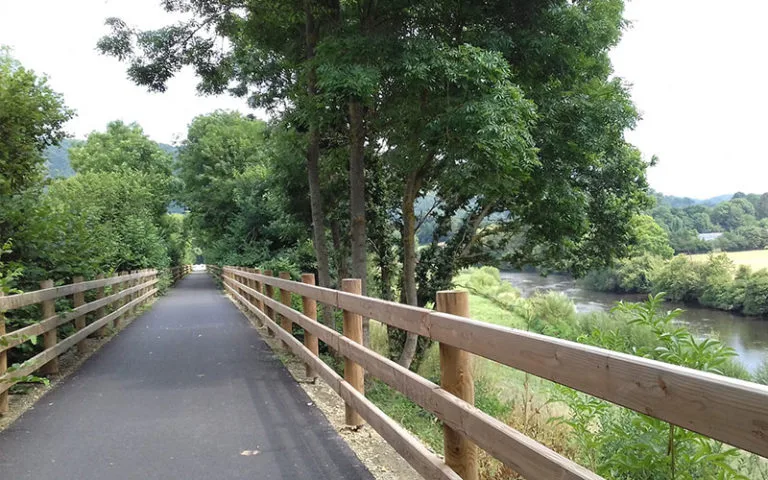
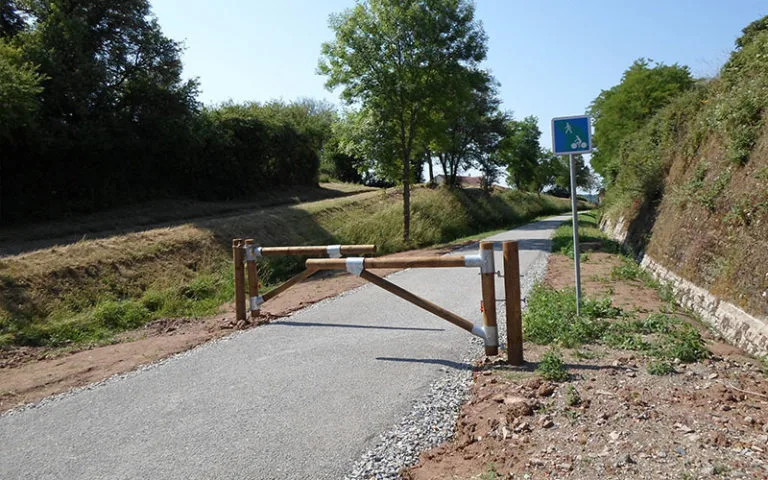
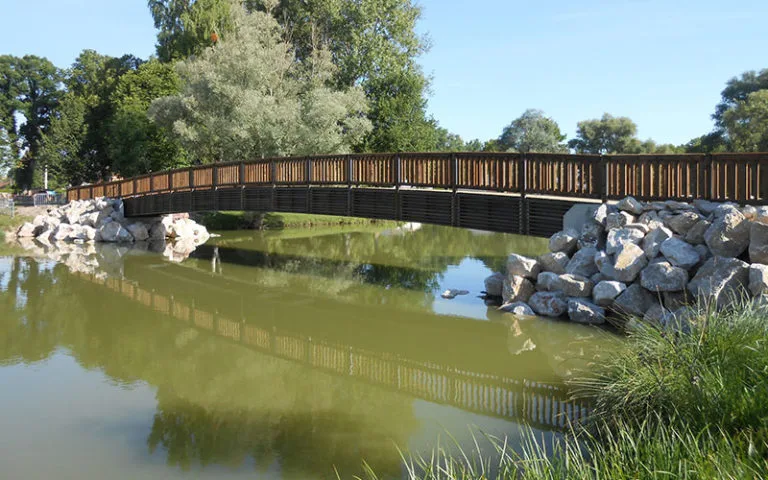
Down the years, the concept has really taken off, encountering success on france’s road networks and in its towns and villages. Today, the company sells 14 different models of mixed wood and metal barriers, for sections to run alongside roads or to sit beside bridges. At the same time, making the most of its expertise in working on wood products, tertu has developed its know-how in the production of wood and metal pieces to kit out other sites, ‘‘from acoustic screens to guard-rails via fencing to line cycling greenways’’. Another strong point in the company’s activities is the designing of light wooden or wood and metal bridges suitable for walkers or light vehicles. ‘‘this has become a flagship product for us. In 2017, we invested in metalworking equipment enabling us to put together steel structures and to control the production of such elements from a to z,’’.
For the last 3 years, the company has also been working on automating its production, with the aim of replacing its two production lines with one, entirely robotic, during 2023. “This will secure our footprint here and allow us to free up 6 collaborators, who will be moved to higher added-value posts within the business” adds Vincent Calleja.
The environment and sustainable development form an integral part of our values.
A global leader and innovator
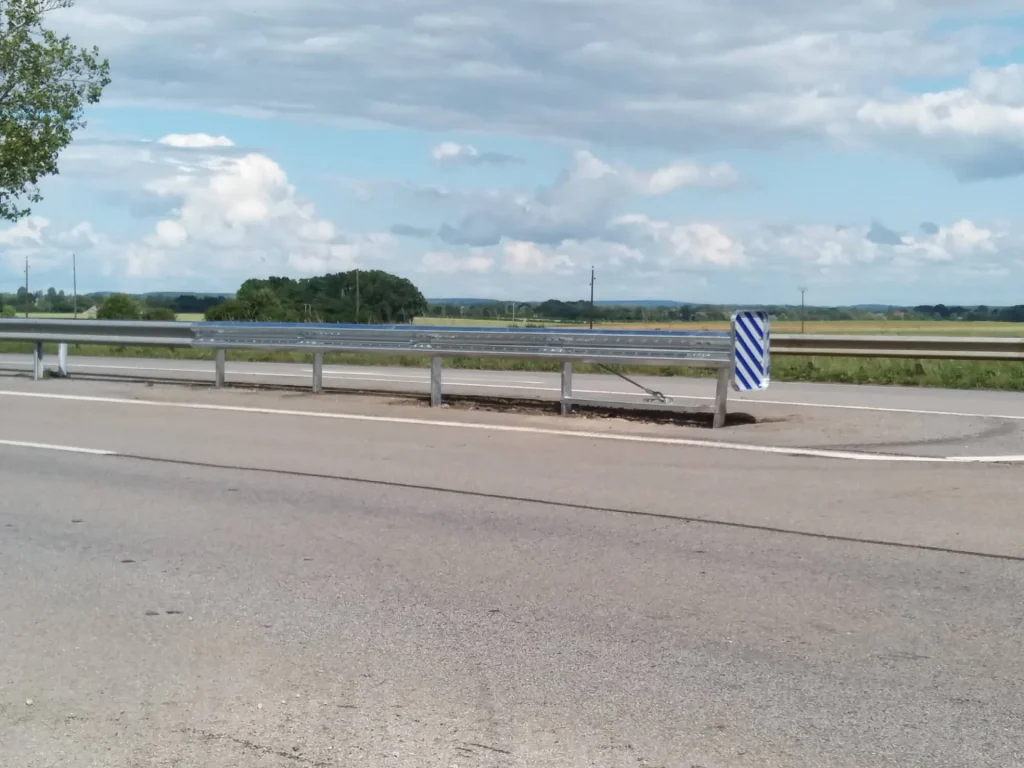
In parallel with its designing of barriers, and given that roads cover such a large part of the planet, tertu has exported its know-how, working via distributors or subsidiaries, turning it into the leader in this specific market. ‘‘from the start of the 2000s, we also began developing partnerships with two foreign companies, trinity, in the usa, and marcegaglia, in italy, to be able to distribute, around france, innovative products related to the market in road equipment.’’ the first partnership focuses in particular on impact attenuators (or crash cushions) and barrier end panels, conceived to absorb shocks, placed at the ends of crash barriers to help avoid vehicles jumping over them, overturning or bouncing up; the second to equip particular works with steel barriers. ‘‘these partnerships have allowed us to enlarge and diversify the range of products we offer in france,’’ aurore foursin emphasises.
Today, we are present in 45 countries, with a network of 50 distributors, plus four subsidiaries, in Chile, China, Brazil and the Usa.
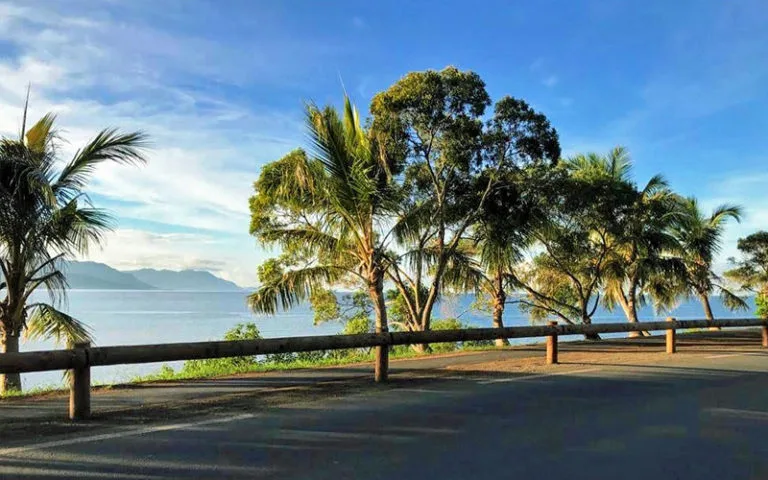
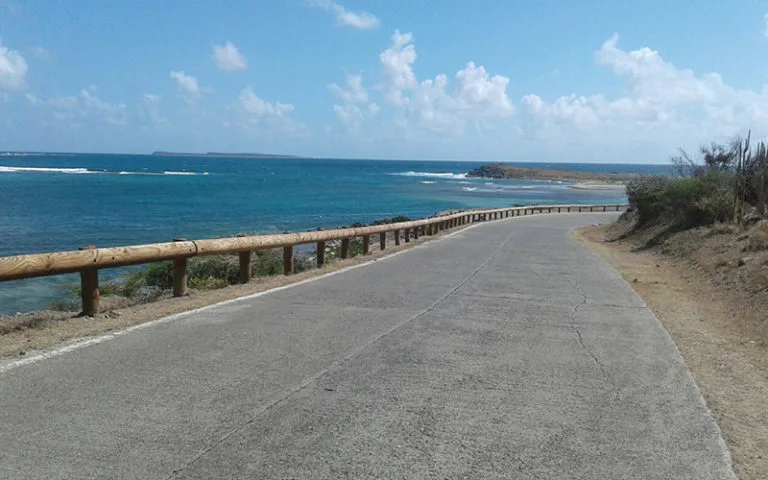
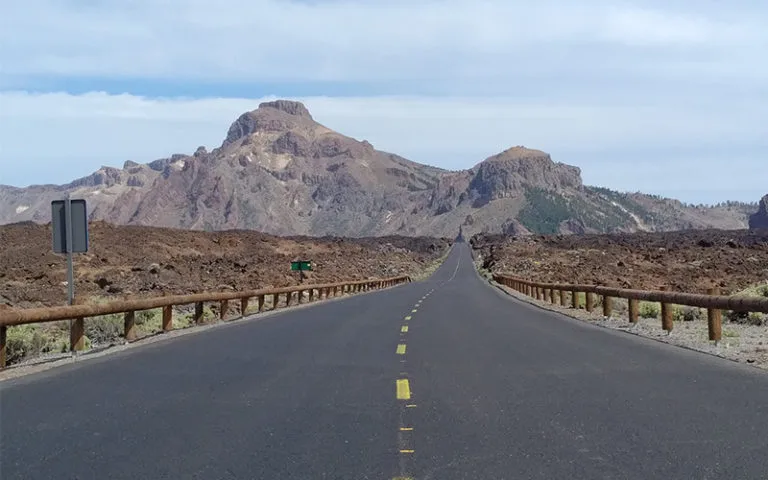
New markets and modernisation
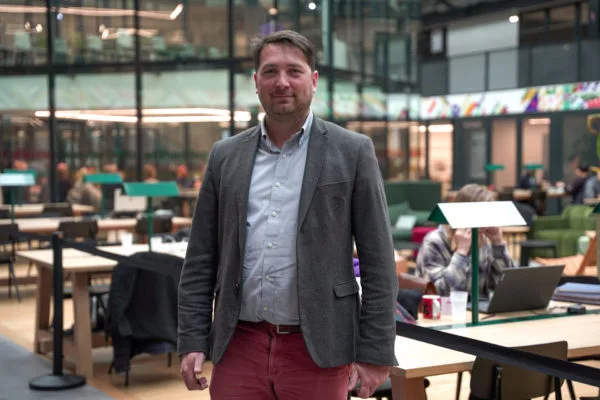
At the end of 2022, Tertu bought a new site, in the Isère County, close to Italy and the PACA region of France – large clients – allowing the company to infill and problems of resources and production. “We are at full capacity on our Normandy site. First, in wood supply. It would be a heresy to go beyond 300km for our supplies – but also in capacity, with only a single production line up until now.” Now with 70 collaborators and a fully automated new site, Tertu is now able to ensure production for these new markets. “Our idea is to capitalise on exports – we have developed a new barrier of the American market, and we’re in the process of crash-testing a second” indicates Vincent Calleja.
The idea is to propose a complete range to offer to new markets: South America, south-east Asia as well as the Middle East, which has already ordered the future American models. “They are not the same vehicles, nor the same speed limits or angles… so we don’t check the same things, or develop the same products” indicated the Director, determined to make Tertu a high-impact SME. “I want to keep the DNA of the family company, with shared values: pushing oneself, operational excellence, collective expertise and an openness to the world.”
Security through barriers, safety through protective features, stopping vehicles crashing, and through quality surfaces… over 30 years, this Normandy company has established itself as a crucial player in road safety equipment.
Thematics


